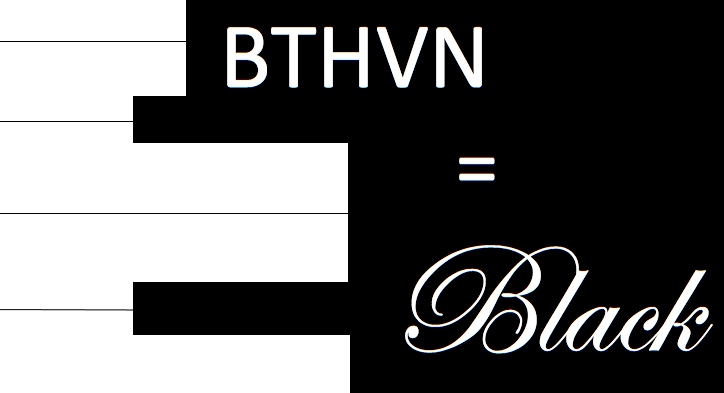
THEME INFO
CULTURal DIVERSITy, INCLUSIon, equity, and access
IN the Classical Music Sector
In the past months (and before) a growing amount of articles was published on the topic. Hereunder, you’ll find a selection of these.
Please note: the fact an article is published on this page, does not indicate that Museum Geelvinck endorses its content. For our vision, please see Our Mission.
In case you know additional inspiring articles on the topic, please do not hesitate to e-mail these to us: info@geelvinck.nl
• Zachary Woolfe & Joshua Barone, The New York Times, 16 juli 2020: ‘Black Artists on How to Change Classical Music’
• Brandon Keith Brown:
– NPR: Classical Music Can Change The Racial Conscience Of Society
– WDR: Beethoven was Black
– ARTE: https://www.arte.tv/de/videos/100851-002-A/twist/ (Fast forward to 14:24)
– DIE ZEIT: Mozart Belongs to Everyone
– MEDIUM: Black concert trauma
– WDR (July 18th, 2020): BeethovenWasBlack: Dirigent Brandon Keith Brown über Rassismus in der klassischen Musik
• Luke Welch: Life as a Black Classical Pianist
• Chi-chi Nwanoku: Discussing her life on Talking Africa
• Orville Breeveld, podcast together with Floris Kortie (Dutch): Gemiste Sterren
• Alex Burghoorn & Merlijn Kerkhof in De Volkskrant, December 10th, 2020 (Dutch): Hoe maken we de wereld van de klassieke muziek minder wit?
• Giovanni Russenello, New York Times, September 3rd, 2020, Jazz Has Always Been Protest Music. Can It Meet This Moment?
• Frank Rojas, Latin music term ‘urbano’ comes under scrutiny in wake of protests, Los Angeles Times, June 15th 2020
• Shuku Kanneh-Mason, Cellist Sheku Kanneh-Mason: ‘Classical music isn’t racist. It’s about access to music education‘, ClassicFM, June 19th, 2020
• Luister (Dutch), Pianiste Isata Kanneh-Mason wil meer diversiteit, August 9th 2019
‘Early Music America and The Handel + Haydn Society present a Black History Month conversation with leading Black musicians in the field of early music and historical performance practice.’
• African Heritage in Classical Music: AfriClassical.com
• 18-Year-Old African-American Cellist Killed Admid Philadelphia Race Protests
• Ludwig van Mechelen, In memoriam conductor George Octors, Klassiek Centraal, June 27th, 2020
• Danielle Brown, An open Letter on Racism in Music Studies, My People Tell Stories, June 12th, 2020
Further suggested literature:
– Laurent Aubert (vertaling Carla Ribeiro), ‘The music of the other – New Challenges for Ethnomusicology in a Global age’, Routledge, 2016
– Aleksey Nikolsky, Evolution of the Music Market: how Western Music Canon Relates to Westernization of the World
– Kira Thurman, Black Venus, White Bayreuth: Race, Sexuality, and the Depoliticisation of Wagner in Postwar West Germany (publish shortly)
– Robert Garfas, Music: the Cultural Context, Senri Ethnological Reports 47, National Muyseum of Ethnology, Osaka, 2004
– Michael Church (ed.), The Other Classical Musics – Fifteen Great Traditions, Aga Khan Trust for Culture, The Boydell Press, 2015
BEETHOVEN WAS BLACK?
First proposed in 1907 by Afro-British componist Samuel Coleridge-Taylor (1875-1912), the concept Beethoven had African ancestors remains being discussed up till today. As he reflected on his recent trip to the US in relation to his own facial characteristics being, in his view, similar to those of Beethoven, he stated: “If the greatest of all musicians were alive today, he would find it impossible to obtain hotel accommodation in certain American cities.”
Over the years several articles have been published on the subject. You’ll find an excellent overview of this in the article by Philip Clark in The Guardian of September 7th, 2020: ‘Beethoven was black’: why the radical idea still has power today
The following article by Naomi Swanson was followed by an avalanche:
– Naomi Swanson, Beethoven may have been black, The Concordian (Concordian College), Moorhead (Minn.), February 19th, 2015
– Julie Ownono, Was the German composer Beethoven, African?, Africa is a country, May 6th, 2015
– Maddy Shaw Roberts, Was Beethoven Black? Twitter debates German composer’s true heritage, ClassicFM, June 22nd, 2020
– Shannon Raphael, A Tweet About Beethoven Being Black Went Absolutely Viral – Is It True?, Distractify, June 18th, 2020
– Philosofried op YouTube: Was Beethoven Black?
– Jordannah Elisabeth, Stealth Isolation: ‘Was Beethoven Black?’ – Five Black composers we never knew, New York Amsterdam News, June 25th 2020
– J.J. Foster, Claims That Beethoven May Have Been of African Descent Has the Whole Internet Talking, Ninja Journalist, September 8th, 2020
– xzotl op YouTube: Was Beethoven Black?
– ImDeeTiller op YouTube, Ludwig Van Beethoven was Black (Proof), June 18th 2020
– Amaya Woodley, Resurfaced Blog Post Stating Beethoven Was Black Has Twitter Reacting Just How You Would Expect, Blavity, June 19th, 2020
– Penzaboy Management, Me after finding out Beethoven was Black, Facebook, June 19th, 2020
– Thizzier on the roof, When you found out Beethoven was Black, Facebook, June 20th, 2020
– Dear Silas, When I found out Beethoven was Black, Facebook, June 27th, 2020
Further suggested literature:
– Nicholas T. Rinehart, Black Beethoven and the Racial Politics of Music History, Indiana University Press, Hutchins Center for African an African American Research at Harvard University, Transitions No. 112, Django Unpacked (2013), pp. 117-130
HISTORIcal CONTEXT
– Rhys Jones (Trinity Hall, Cambridge), Beethoven and the sound of revolution in Vienna, 1792-1814, The Historical Journal no. 57-4 (2014), pp. 947-971, Cambridge University Press, 2014
• Leo Samama (Dutch), Beethoven en zijn tijd, Opus Klassiek, February 2010
• Bridgetower: The Black Violinist Who Inspired Beethoven, The New York Times, September 4th, 2020
• Beethoven op de BBC (3 parts):
https://vimeo.com/437452290/4986d0cc3e
https://vimeo.com/438116202/3370080cbf
https://vimeo.com/user90572635/review/440060372/6d12349172
• Beethoven en Japan (The Japan Times)
• Beethoven en China: Jindong Cai & Sheila Melvin, Beethoven in China, Penguin Specials, 2016









